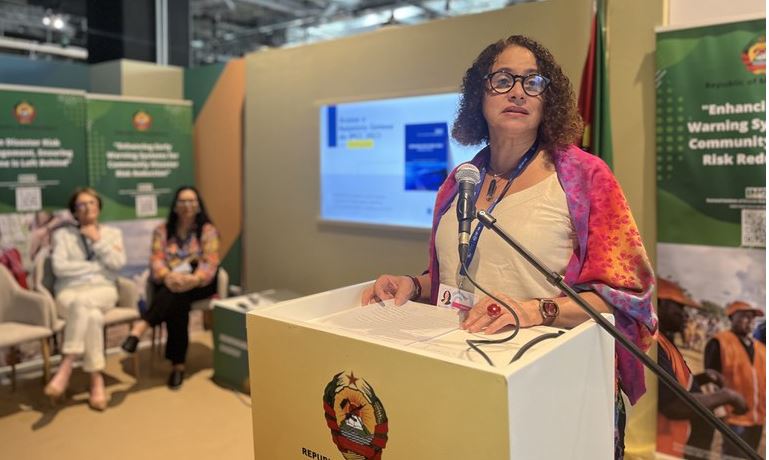
Published 03/12/2023 13:00 | Edited 12/04/2023 08:24
During COP28, Brazil presented the most recent report from the Intergovernmental Panel on Climate Change (IPCC) translated into Portuguese. The effort was carried out by the Ministry of Science, Technology and Innovation (MCTI) in conjunction with the UN Global Compact in Brazil.
The initiative aims to facilitate access and expand the dissemination of the most recent scientific information on climate change throughout the Community of Portuguese Speaking Countries (CPLP).
The presentation of the publication was held at COP 28, in Dubai, this Saturday (2), at the Mozambique Pavilion, during an official event of the Lusófono Nucleus. The digital publication is available at the Brazilian National Emissions Registration System (SIRENE) website.
The IPCC Sixth Assessment Cycle Synthesis Report (AR6), released in March 2023, in the versions of the full report (Longer Report) and Summary for Policymakers (SPM), concentrates the main information about the changes global climate.
Read more: COP 28: Luciana Santos announces more than R$20 billion for the green agenda
The report consolidates the data presented by the working groups and in special reports throughout the AR6 cycle, which highlighted advances in science in attributing climate change as a vector of extreme events, improving models and assessing impacts, and in indicating paths to solutions.
The messages are relevant to support public policies, considering the results of the different reports of this sixth cycle of the IPCC, such as the need to integrate mitigation agendas (reduction of greenhouse gas emissions) and adaptation to climate change with a view to climate resilient development.
The report presents with high confidence that deep, rapid and sustained reductions in greenhouse gas emissions would lead to a noticeable slowdown in global warming within about two decades, and also to discernible changes in atmospheric composition within a few years.
This basis for evaluating available scientific, technical and socioeconomic literature provides governments with scientific information that can be used in the development of national and regional climate policies, in addition to being input for international negotiations on climate change.
The Community of Portuguese Speaking Countries (CPLP) is made up of nine countries: Angola, Brazil, Cape Verde, Guinea-Bissau, Equatorial Guinea, Mozambique, Portugal, Timor-Leste and São Tomé and Príncipe.
According to the CPLP, the group of countries covers more than 250 million people. Many countries fall into the category of least developed countries and may be among the most vulnerable considering the impacts of climate change.
According to CPLP, Portuguese is the fifth most spoken language in the world. The language is not among the official languages of the United Nations. Therefore, at the initiative of the Brazilian government, from the Sixth Assessment Cycle (AR6) of the IPCC onwards, special reports began to be translated and made available in digital format on the MCTI and IPCC websites. The action demonstrates Brazil’s engagement in the climate issue and cooperation with other Portuguese-speaking countries.
For some of the countries, having technical-scientific material in the native language represents the removal of barriers to the engagement and participation of experts and public and private managers around the climate agenda, such as the implementation of actions in the areas of mitigation, adaptation and technology.
“Climate change is humanity’s greatest challenge, and every possible effort needs to be made to face it. Therefore, access to knowledge in the native language is an important mechanism to ensure and expand correct, clear information from a reliable source that can be understood in its entirety. The relevance of this translation means guaranteeing the right to information. We are affirming our commitment to removing barriers to guarantee access to scientific information and open science”, stated minister Luciana Santos.
“The translated report is a great effort and success on the part of all parties involved. When it comes to climate change, you need to be very objective and break down any barriers, including language. Making scientific information accessible to more people, companies and countries brings everyone into action and allows everything to be more assertive”, added the CEO of the UN Global Compact in Brazil, Carlo Pereira.
Thelma Krug, who was vice-president of the IPCC from 2015 to 2023, highlighted the importance of having scientific information as well as illustrations and graphics translated for ease of use.
Krug also highlighted the concern that science carried out in the Global South has greater representation in the assessment made by the IPCC. “We have to get our scientists and experts guided to be authors of the IPCC. Only in this way will we be able to have greater participation from our developing countries. So that the next scientific report can reflect [essa diversidade]”.
“Today, we are experiencing a climate crisis and the moment demands that countries be given scientific relevance so that they can produce their policies. They need scientific information that helps countries quickly implement their public policies based on the best science”, concluded Thelma.
Source: vermelho.org.br

